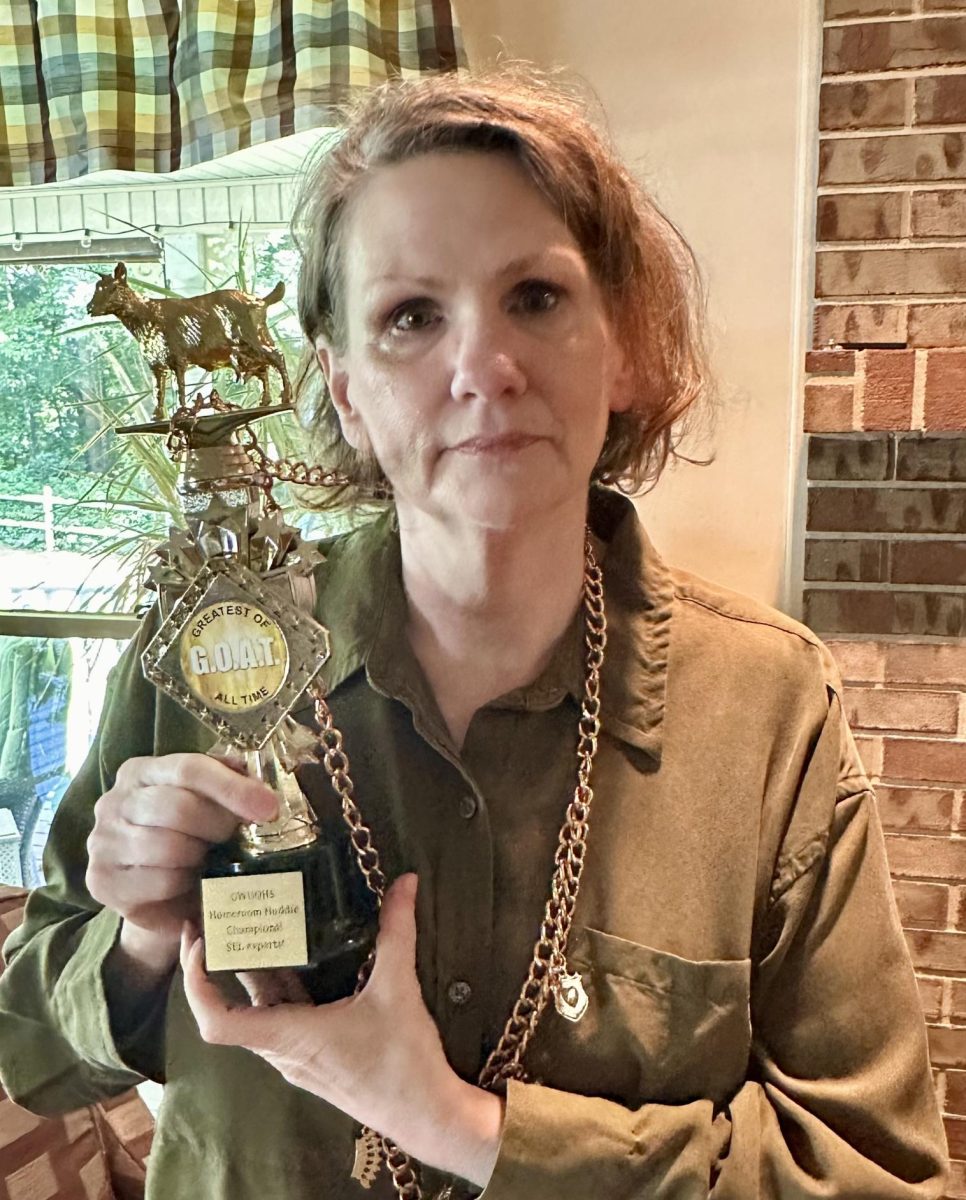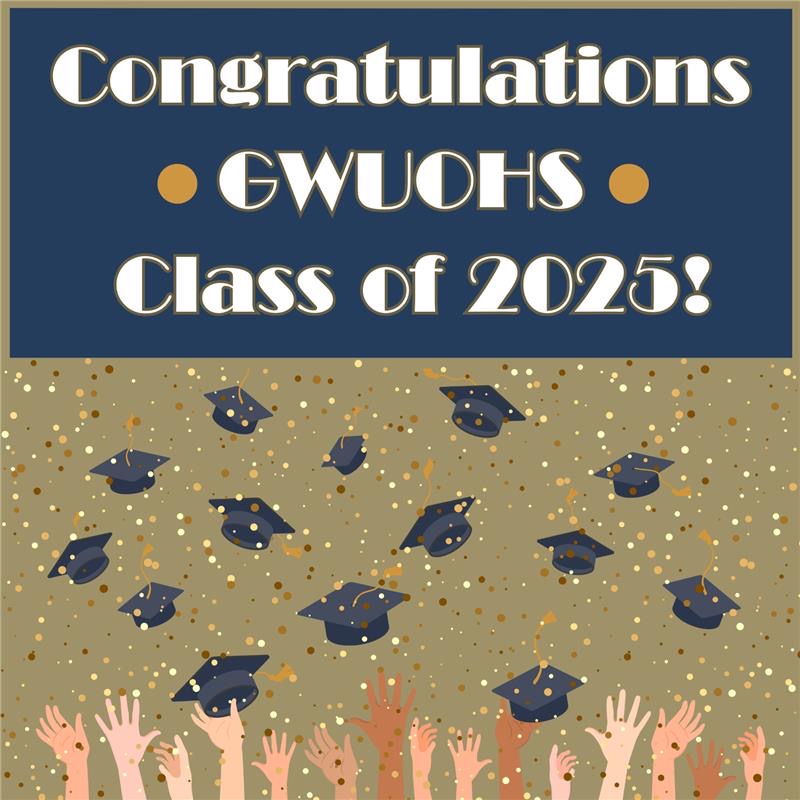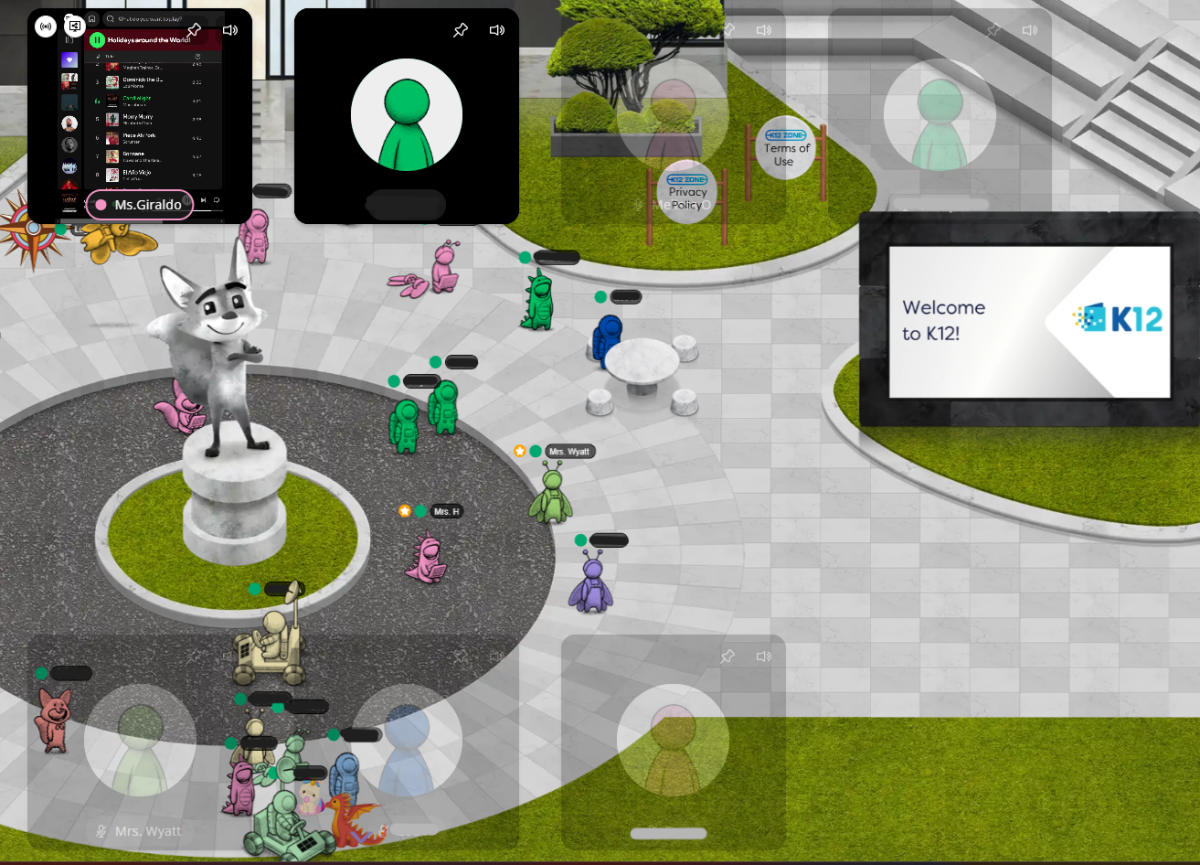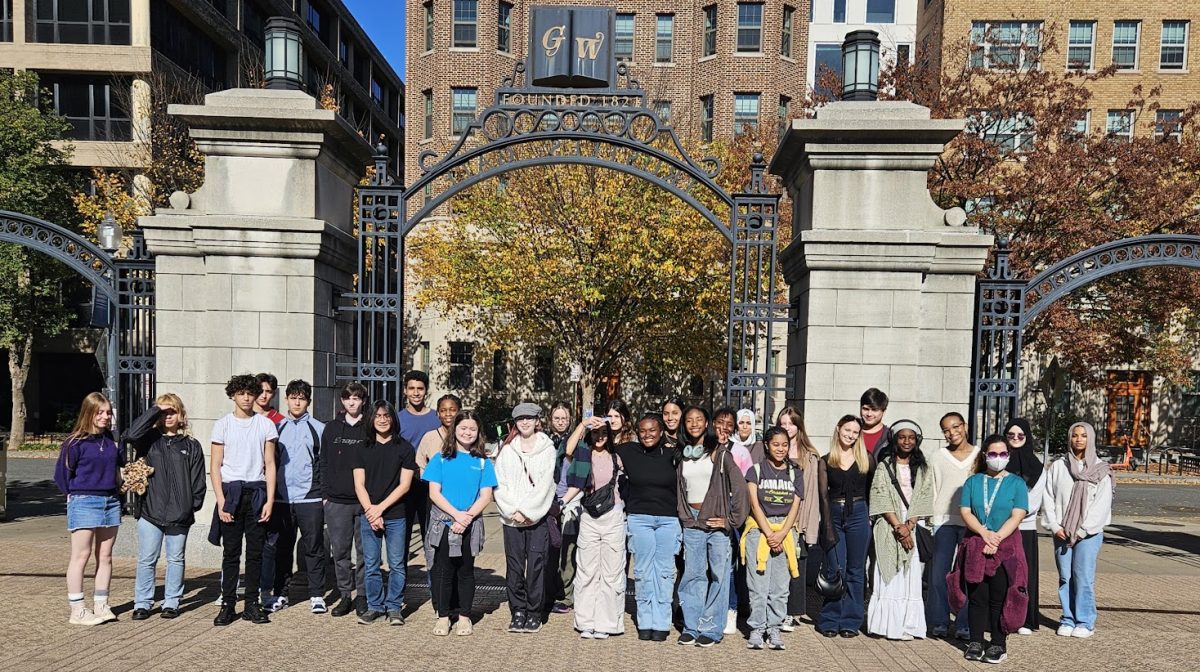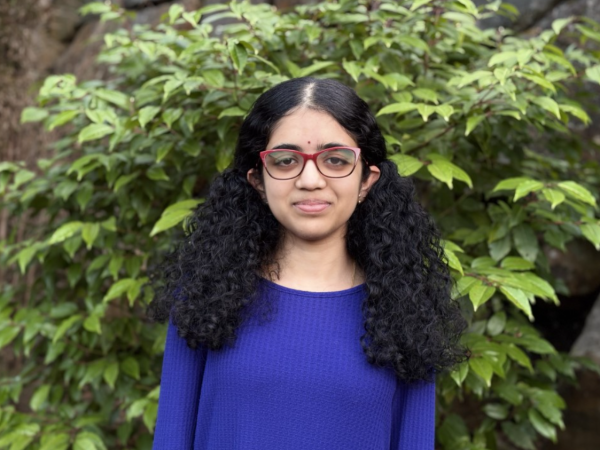After a heated competition between homeroom groups on May 2, academic adviser Laura Nielsen’s advisees emerged as the winners of the Battle Royale tournament, an annual event testing students on their knowledge of the year’s curriculum of social emotional learning.
At George Washington University High School, each student is assigned to a homeroom group led by an academic adviser. These groups meet at monthly sessions called homeroom huddles to cover each of the Collaborative for Academic, Social, and Emotional Learning’s (CASEL) core competencies including responsible decision-making, self-awareness, social awareness, relationship skills, and self-management.
An annual tradition at GWUOHS, the Battle Royale tournament pits homeroom groups against each other as they complete a series of challenges to prove their mastery of the CASEL skills taught throughout the year.
In one activity designed to symbolize self-management, students were challenged to keep themselves from laughing as they listened to a collection of one-line jokes. Academic adviser Natalia Giraldo admired the self-control of the participants during this challenge.
“It takes a lot of emotional restraint to not laugh at dad jokes,” Giraldo said.
By winning the greatest number of challenges, Nielsen’s homeroom group secured the G.O.A.T. trophy, a prize that both stands for “greatest of all time” and is shaped like a goat.
Junior Reem A. appreciated how the event encapsulated the skills learned through the year and brought together students from all grade levels. However, she believes that in future iterations of the event, organizers should provide more time for each challenge to create a more inclusive experience.
“At times, there were slight issues that were overlooked and the competition just moved on,” Reem said. “To ensure everything is fair, I think it would be better to take a bit more time with each round.”
Lead academic adviser Krista Wyatt, on the other hand, sees these unexpected challenges as opportunities to practically apply the skills taught in homeroom.
“While we talk about these CASEL competencies all year long in our homeroom huddles, it’s during our all-school assemblies and social events that we really see them come to life,” Wyatt said. “Whether it’s cheering each other on, making smart calls under pressure, or lifting up a friend who’s having a tough moment, they’re showing off their social superpowers in real time.”
In addition to the CASEL skills, the advisers incorporated a contest whose winner would be the homeroom groups that submitted the most yearbook portraits. English teacher Elizabeth Beckham, the faculty sponsor of the yearbook club, is grateful for the engagement this activity brought to the yearbook.
“It was a big help in collecting portrait photos,” Beckham said. “Students submitted 29 photos that might not otherwise have been in the yearbook, and that’s a huge win for us.”
Despite playing against each other in the tournament, the academic advisers celebrate each other’s wins. For Giraldo, the most memorable part of the competition was Nielsen’s homeroom winning the trophy.
“It’s not just about the glory, it’s a chance to bond, laugh, and go head-to-head while brushing up on the CASEL competencies we’ve explored,” Wyatt said.

